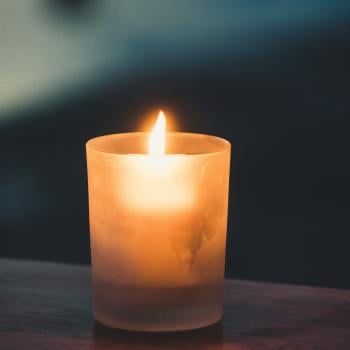
Excerpt from the book Copyright © 2025 by Karl Forehand
Learning to Celebrate Yourself
“I celebrate myself, and sing myself.” – Walt Whitman
Celebrating my accomplishments is something that I look forward to during every project, but it’s hard for me to do. Several guides in my life, including my current therapist, have reminded me of this fact. This issue is a sticky situation I find myself in because I was taught early not to be proud. The definition of pride and confidence got tangled up in my ego and false humility.
Because developing the ego is a primary part of the first half of our lives, we understand that we need to be determined and confident to accomplish goals. But if we don’t celebrate after each completion, then accomplishments only leave us with the ache of desire to achieve more. I realized I was conditioned to strive for something “significant” to do, and then I lost my way when I realized it’s possibly all in the definition of what is significant.
In churches and other organizations, it is common for typical congregants to yearn for recognition from the stage. Many of us have dedicated years to supporting the organization, hoping for some acknowledgment from the larger entity. We may say we did it for God, but primarily, we seek appreciation for our hard work. Organizations expect dedication and commitment when they welcome you as a member. They rarely offer acknowledgments that reflect the effort invested. The reason is that they mainly celebrate themselves.
Organizations Celebrate Themselves
Organizational missions and objectives focus on corporate outcomes. Once an organization is established, it can be challenging to recognize all the individuals who contribute to its success. This includes attendance targets, conversions, and church construction projects. Achieving these goals requires ongoing efforts to recruit volunteers and secure funding. With tens of thousands of dollars and countless hours of volunteer effort at stake, it’s easy to overlook the individual contributions that turn the organization’s aspirations into reality.
When embarking on a deconstruction journey, we quickly recognized the chaos involved. We have set aside a framework to uphold our integrity and seek answers to the questions we’ve been asking. However, this is not a well-trodden path that can be neatly organized and celebrated as an institution. We are mainly on our own, yet we soon realize that no one can take credit for what we are achieving now.
While it can be somewhat frustrating not to have the organization’s collective strength, each step we take feels even more rewarding. We recognize our ability to act independently, discovering the best path forward without struggling against patriarchy and power imbalances that hinder our pursuit of goals within the organization. We fully embrace our accomplishments and will seek allies and trustworthy mentors who support us. We no longer wait for announcements from the stage; we now celebrate ourselves.
False Humility
My parents told me that when I was little, I would hide under the coffee table whenever someone visited. When I turned about five, I got very thick glasses, sometimes adorned with prisms or a type of eye patch to help correct my lazy eye. I was also skinny and relatively short, and until I could buy my own clothes, I often wore things that were out of style and didn’t boost my confidence as I navigated the world as best as I could.
Since I was told I was shy and was never really taught to be confident or self-assured, I learned to use my shyness as a hidden strength. I discovered how to change the narrative from being shy to projecting humility. I was never the person who dominated conversations in a group setting, as I often had very little to contribute. This tendency to withhold my wants, needs, and concerns was perceived as humility, and once I recognized it, I leveraged it to my advantage.
False humility revealed itself when I downplayed my achievements and pretended to be modest. I now recognize that this was prideful and somewhat self-centered. It prevented me from acknowledging my true worth because I craved recognition but didn’t want to seem like I was seeking attention.
With help from my therapist, I realized that I was avoiding celebrating myself while longing for acceptance and acknowledgment from others. I accomplished things outside of religion, such as publishing books, hosting podcasts, and writing blogs. However, because I was waiting for recognition from the larger group, my deconstruction journey revealed that I was no longer a part of that group and that they were not going to recognize my worth.
Although the transition was challenging, I started to trust myself more and rely on my intuition about what I should pursue and achieve. Gradually, I learned to let go of my need for approval from others. The voice in my head began to ask, “What do you want to do today?” instead of focusing on what would get me noticed.
I initially missed being on stage because it offers immediate recognition. Our society generally believes that performers deserve their roles, making them seem unique for addressing the group, with their opinions appearing to carry more weight than the collective’s. Throughout my deconstruction, attracting a crowd proved difficult since the organization wasn’t present to provide that incentive for me. Most conferences feature one speaker addressing an audience of individuals who aspire to become that singular person on stage.
When we genuinely find humility, it may be misguided to label it as such (once you realize you have it, you lose it). We don’t feel humiliated or worthless; instead, we often uncover our true sense of self-worth, which is far better than maintaining a facade that manipulates the system and shapes how others perceive us. We learn to accept compliments graciously and respond with “Thank you” rather than saying, “It was no big deal.”
As we embark on the journey of deconstruction, we often find that much of the organizational structure is missing from our lives, leading to a tendency to replace false humility with false optimism. Our thoughts and emotions shape changes in our daily habits and propel us forward, so coaches often promote a version of false optimism that typically doesn’t resonate with me. I recognize the importance of setting goals and believing we can achieve them, but sometimes, this process misleads us into thinking there’s a magical formula for reaching our aspirations.
Our most significant accomplishments occur when we set realistic goals and work diligently to achieve them. Once we cultivate a foundational intuition, we gain greater trust in ourselves, and our pursuits become more meaningful than superficial popularity. We don’t need to conform to a sure way to fit in; instead, we can take pride in being true to our authentic selves, which can accomplish far more than we often recognize.
False humility is practical in a group because little recognition reaches the lowest levels, where most of the work occurs. We convince ourselves that we don’t need recognition and are doing it for the greater good of the community. However, once we left the system and began discovering new things, we realized that we might be the only ones who can celebrate our successes and our determination to persevere even when it’s tough, and very few people notice.
Celebrate Yourself
I was talking to my therapist about the challenges I faced in publishing several books because I hadn’t received the response I had hoped for. Some people along the way let me down, making the process more challenging than I expected. While I did receive some recognition for my achievements, it still felt inadequate. I was trying to navigate these feelings when she said, “But you wrote a book!”
She had to repeat it a few times before it sank in, and I began to understand. How could my life ever be fulfilling when I long to do significant things but fail to recognize that what I just achieved was significant? Now that I know how to pursue my goals, my mind always wants to move to the next difficulty level. Because I always felt like I was at a deficit, I was in a hurry not just to achieve small things but also big ones, as my conditioned ego made me believe I was never meant to be happy. Enough was never enough!
What are some ways we can celebrate ourselves?
Over the years, I came to believe that hard work would yield just rewards and that if I were successful enough, I could enjoy relaxing vacations in exotic places and find the peace I was searching for. I went on a couple of retreats but only found frustration. At some point during my self-discovery, I realized the beauty of my backyard. We live in a small town, and if I shared the price of my house, you might want to move here. Our living expenses are low, but my backyard is lovely, featuring overhanging trees, various animals, and very few bugs.
When I finally sat on our wrap-around porch and appreciated its beauty, I felt compelled to reflect deeply. Until that moment, each accomplishment had merely driven me toward the next one. Whatever money or recognition I might have gathered, I viewed it as an investment to pursue my next goal aimlessly. As a result, we didn’t own a house until I was nearly 50, primarily because I had invested in future endeavors instead of celebrating what I had already achieved. In a rural Midwest setting, this modest house became my sanctuary.
Another thing that helped me considerably was understanding the process of being and becoming. In my book, Being: A Journey Toward Presence and Authenticity, I began to free myself from the idea that I was merely a human doing things, realizing that being and becoming were more significant than simply accomplishing tasks and hoping someone would notice. The goal shifted to becoming more like my authentic self and being present in every situation. The celebration turned into recognizing who and where I was rather than focusing on what I did.
My most challenging thoughts these days involve practicing celebration as I navigate life. I am learning to fully engage in the present because it is the only time I can control. When I am present and authentic, the things I once considered mundane transform into what truly matters. It’s not about how much money I make or what physical goals I achieve; it’s about being where I am and being who I am.
Even though many frustrating things still exist in my life, particularly after my stroke, I continue to get up and write each day. I strive to connect with the outside world while embracing the state of being and becoming that has transformed my life. There is a celebratory way to navigate this process we call life. We will all discover it when we search within and learn to trust ourselves, celebrating our accomplishments and the entire journey, not just the “significant” milestones.
Not Just the Significant
Many of us face internal struggles that lead to personal satisfaction and achievements as we pursue extraordinary success. We are naturally drawn to groups, particularly religious ones, due to their inherent credibility. Churches are often seen as striving for important spiritual goals, with leaders, especially pastors, recognized as influential figures who make a significant impact. Groups hold this inherent credibility simply by being collective entities, a quality that is even more substantial when they are religious.
When faced with life’s challenges and the urge to make a significant impact, we realize that achieving our goals alone can be difficult. We must motivate, encourage, and care for ourselves to the extent that we often prioritize the organization’s objectives, whether in a corporation, volunteer group or particularly in a religious organization. We are willing to accept less recognition because when the group is acknowledged, we feel a sense of satisfaction and are ready to work hard for the benefit of the collective.
However, what the group focuses on isn’t always what truly matters. Although noble initially, their goals center around attracting and retaining members as much as anything else. Corporations become obsessed with satisfying shareholders and generating profits. Our personal struggles and achievements may seem insignificant to any organization with larger objectives. The fact that I was genuine and engaged will never earn me an Employee of the Month plaque, but it might be one of the most challenging and meaningful things I have ever accomplished.
We may function effectively within organizations if we can identify what is genuinely significant and operate from a place of authenticity and presence. However, leaders and teams often hesitate to share credit, making it more advantageous to invest our energy and time in cultivating what genuinely matters instead of focusing on what is urgent for the organization.
Over the years, religious groups have demonized pride; however, the right kind of pride may not be as harmful as we often think. I believe these groups do this to maintain order, as it gives individuals a certain level of confidence, but not too much. In organized religion, this subtle message often left me feeling embarrassed when I was excited about something I had accomplished. This is the moment in the conversation when we redirect our praise to God rather than genuinely accepting compliments and taking pride in our achievements.
In my previous Christian community, people often exchanged their pride in accomplishments for phrases like, “All praise goes to God” or “I couldn’t have done it without your support.” This encourages a sense of humility before someone else takes the initiative to do so. In some households and faiths, maintaining humility is crucial, as it fosters alignment with the group’s goals when individuals can acknowledge their pride. I’m not suggesting this is always intentional; I’m simply noting that it occurs.
Pride can serve as a positive force when we acknowledge that our achievements deserve recognition while also appreciating the contributions of others to our success. Just as organizations like churches and companies take credit for collective accomplishments, we, too, can celebrate and express our feelings about what we’ve achieved. This celebration triggers the release of chemicals such as dopamine, serotonin, oxytocin, and endorphins, motivating us to strive even harder.[1]
While organized religion often diminishes our self-worth in various ways, we cannot effectively engage with our communities without a healthy level of self-confidence. If we continue to depend on groups like organized religion, we will face this reality. Groups have benefits but also pitfalls and discouraging tendencies that celebrate the organization’s success over the individual. The energy needed to overcome group tendencies will be significant because organizations are slow to change and don’t often celebrate the individual.
Many pastors, church members, and civil servants feel pressured by the call to “save the world.” After an election, it’s easy to fall into a mindset focused on what more I could have done instead of celebrating what I can actually achieve. While rooted in good intentions, this mindset can lead us down dark paths where we believe our perceived ends justify the means. Yet even then, we don’t celebrate because it’s never enough. Keep celebrating everything because it all matters!
Celebrate Yourself – Action Steps
What makes us hesitant to celebrate, and why?
What could you celebrate right now?
What are you excited to celebrate next?
Spend 5 minutes writing freely about your thoughts on this chapter and the questions that arose for you.
[1] https://integrishealth.org/resources/on-your-health/2022/july/happy-chemicals
Learn to be Where You Are (Presence)
Are you serious about deconstruction and asking bigger questions?
If that’s the case, this book was created for you. As a former pastor, I made the mistake of deconstructing a bit and then trying to start something new, as I was trained to do. The problem with that approach is that I wasn’t ready to begin something new.

I hadn’t delved deeply enough or asked enough questions. The first stage of deconstruction typically includes assessing our beliefs regarding hell and the afterlife, supporting queer individuals and women in their fight for equality, and achieving a better understanding of racism and privilege.
Many people in deconstruction communities expend significant effort criticizing Evangelicals and attempting to gain a following. While I believe they deserve intense criticism, this strategy fails to effectively tackle the problem because they generally don’t listen to us!
Our tendency to punish our former organizations sometimes overlooks the challenging process of healing and growth. It is the same trap we fell into in our former associations.

Campfires occupy a special spot in the mosaic of history. They act as communal hubs across different cultures and faiths. The campfire’s circular design fosters equal participation within the collective group. The flames at the center draw our focus and encourage face-to-face interactions as we exchange experiences, wisdom, and insights about the world beyond. It is where legendary myths and tales are born.
Order Now – Study Questions in each chapter!
This book is named Campfires in the Desert as it stems from nearly 400 discussions we held with individuals on our podcast, The Desert Sanctuary, and our aspiration to improve.
Available now!
Thanks for considering us, autographed copies are $20
Karl Forehand Campfires in the Desert – A Soft Book Release. Karl Forehand is a former pastor, podcaster, and award-winning author. His books include Out into the Desert, Leaning Forward, Apparent Faith: What Fatherhood Taught Me About the Father’s Heart, The Tea Shop, and Being: A Journey Toward Presence and Authenticity. He is the creator of The Desert Sanctuary podcast and community. He has been married to his wife Laura for 35 years and has one dog named Winston. His three children are grown and are beginning to multiply! You can read more about the author here.

















